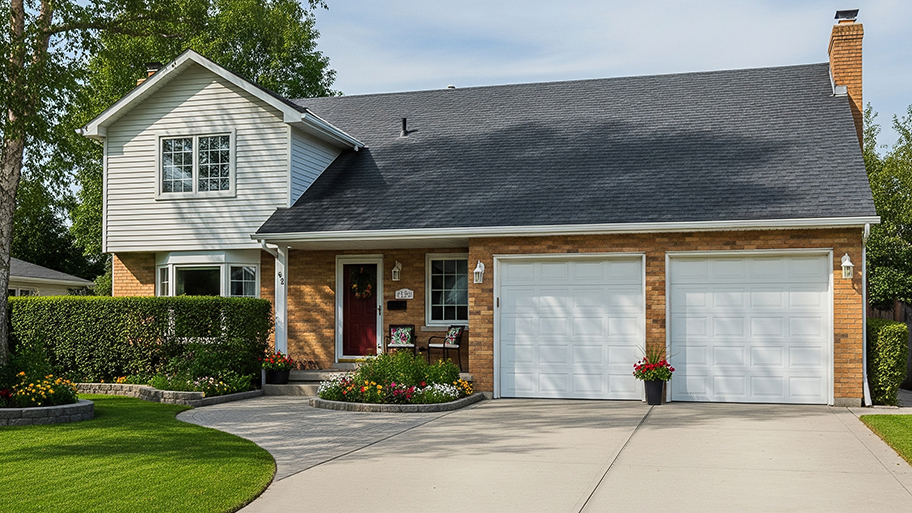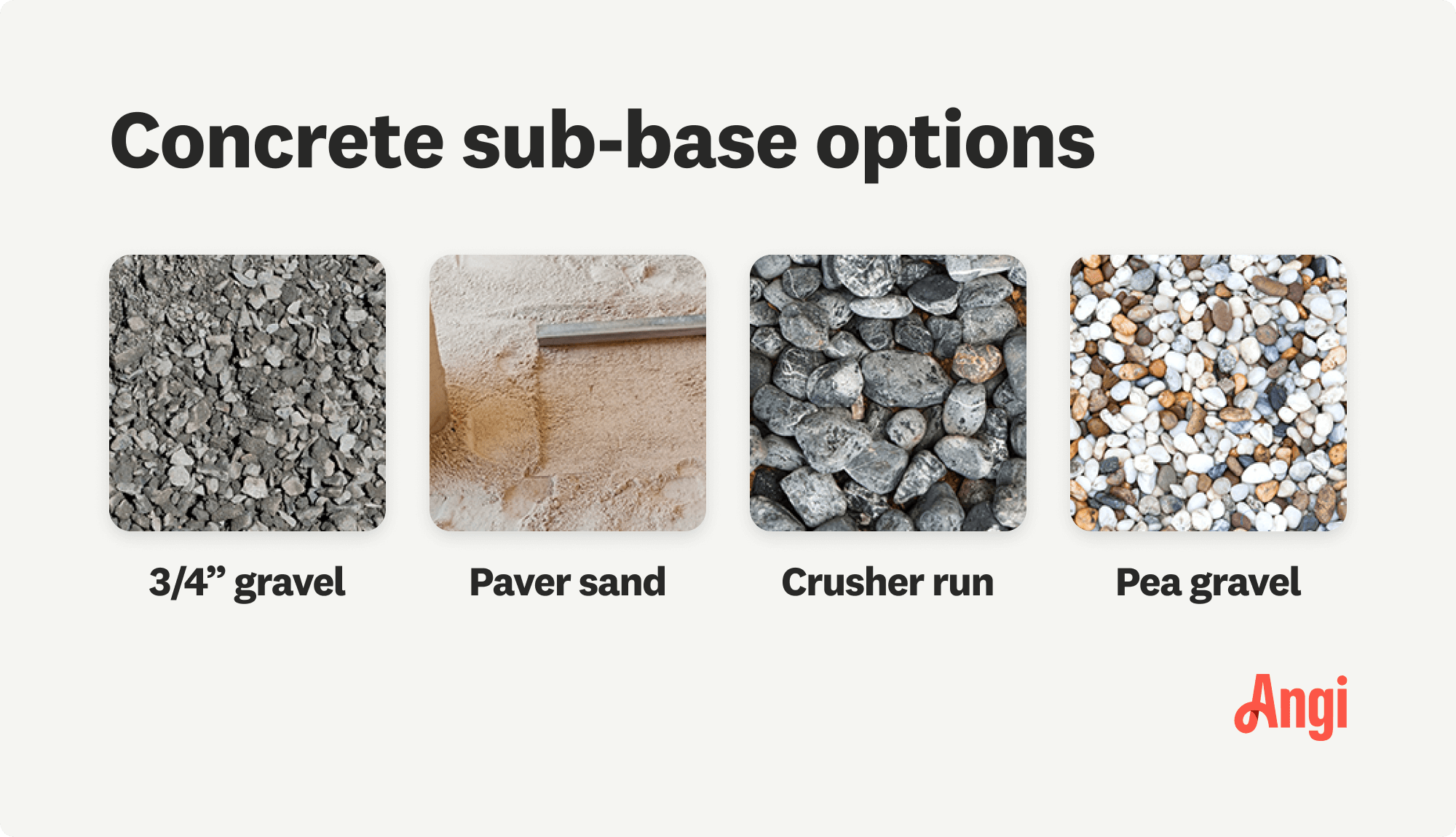
Concrete driveways stand up to a lot of pressure over the years. How much do concrete driveway repairs cost when it's time to give it a little TLC?
If only it were that easy—don't worry, it’s still pretty simple


Pouring concrete over grass is possible, but it’s not ideal.
If you decide to pour concrete over grass, you must prepare it first.
Limestone in concrete neutralizes soil pH levels, which can damage more than just grass.
Swift action can prevent long-term damage to grass if you accidentally spill concrete.
You're installing a patio in your backyard, and you've scouted the ideal spot along the side of the house—a nice patch of relatively level grass that would be perfect as an outdoor living space. Seems like an easy enough project—you only have to mix concrete, block off a perimeter, and then pour, right?
Not so fast. Pouring concrete directly over grass isn't recommended for several reasons. While it's technically possible, there are far better ways to set a structure and protect your lawn.
In this guide, you’ll learn why pouring concrete over grass can cause issues—and better alternatives you can use.
Technically, you can, but you really shouldn't pour concrete over grass.
To maintain its tensile strength, concrete needs to be laid on a firm, even, and dry foundation. Grass and soil will naturally channel moisture into the concrete from below, which will likely result in it cracking over time.
Another reason concrete isn't ideal is drainage. If you don't properly prepare grass or soil for concrete, water may pool after periods of heavy rain, damaging your concrete and potentially even causing stagnant water to sit underneath your outdoor living structures.
Concrete foundation repair costs as much as $25 per square foot. Laying a foundation directly over grass only increases the chance that you'll need to hire a concrete contractor to fix the damage.
Yes, concrete will quickly kill grass—within three days.
Here's why: grass, just like any other plant, thrives at a certain pH level in soil—between 6 and 7 in most climates. Concrete makes grass far, far more alkaline.
That's because limestone, or calcium carbonate, is one of the common ingredients in concrete. It's actually sometimes used to reduce acidity in soils, such as when grass struggles to grow underneath pine trees, due to its neutralizing effects.
It's easy to forget that soil is a living organism full of minerals, organic matter, and water. Long-term exposure to concrete can damage soil's microbial activity permanently, making it very difficult to re-grow grass in that area later should you try again.
Alternatively, maybe you've found yourself in a situation where you (or a contractor) accidentally spilled fresh concrete on grass.
Here's what you need to know about this situation:
A small amount of concrete or concrete dust spilled on grass won't necessarily kill it.
Still, wet concrete should be removed immediately with a shovel.
Grass growing around the perimeter of a new concrete structure should be just fine.
If you spill a lot of concrete on grass and there's no hope of removing it all, use a shovel to dig four inches below the surface of the affected area before the concrete hardens. Your best bet is to simply start all over again. Lay down fertilizer, water, and grass seed. Swift action can prevent the soil in the area from becoming seriously damaged. A large patch of "dead" soil with no microbial activity can make it hard for nearby soils and grass to grow, too.

You technically can, but it's not ideal for most types of concrete. Ideally, you will create a barrier of gravel or sand on top of the dirt to help keep the concrete dry and allow water to drain underneath. Laying concrete over dirt could make the foundation unstable or lead to cracks in just a few months or years, as opposed to your new concrete slab lasting for a decade or more.
Opting for gravel as a concrete base is ideal for the reasons outlined above. Fine rocks compact down and sit firmly to establish a base for your concrete. They also allow for adequate drainage through the soil and prevent pools of water from forming.

From average costs to expert advice, get all the answers you need to get your job done.

Concrete driveways stand up to a lot of pressure over the years. How much do concrete driveway repairs cost when it's time to give it a little TLC?

Whether you’re planning on putting in a concrete driveway, patio, or staircase, use this concrete delivery cost guide to get an accurate estimate.
Need to breathe new life into your exterior stoop? Use this guide on concrete step repair cost to see the price of a professional repair.

Take a look at how to give old concrete a facelift or put new concrete on the path to a gleaming, glossy finish in this guide on how to grind concrete.

Looking for the best time to pour concrete? Consider the temperature, the weather and climate in your area, the time of year, and sunlight exposure.

Concrete driveways last longer than asphalt ones and often look nicer, but can you pour concrete over asphalt? You can, and here’s how.